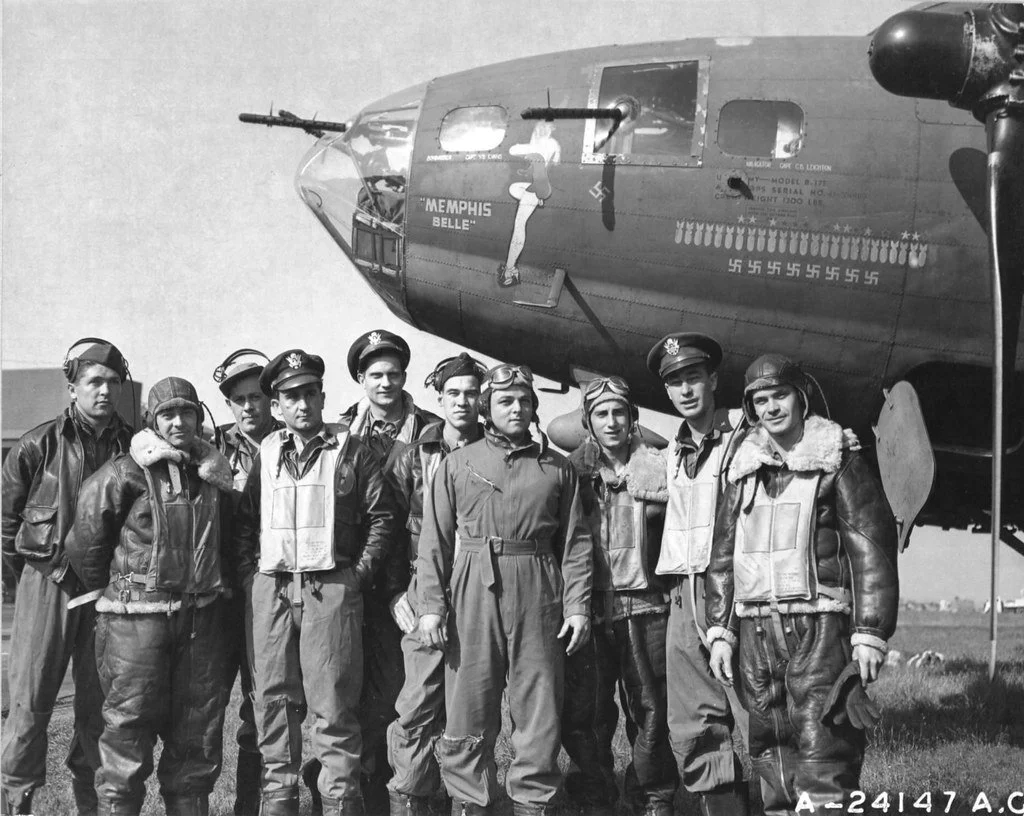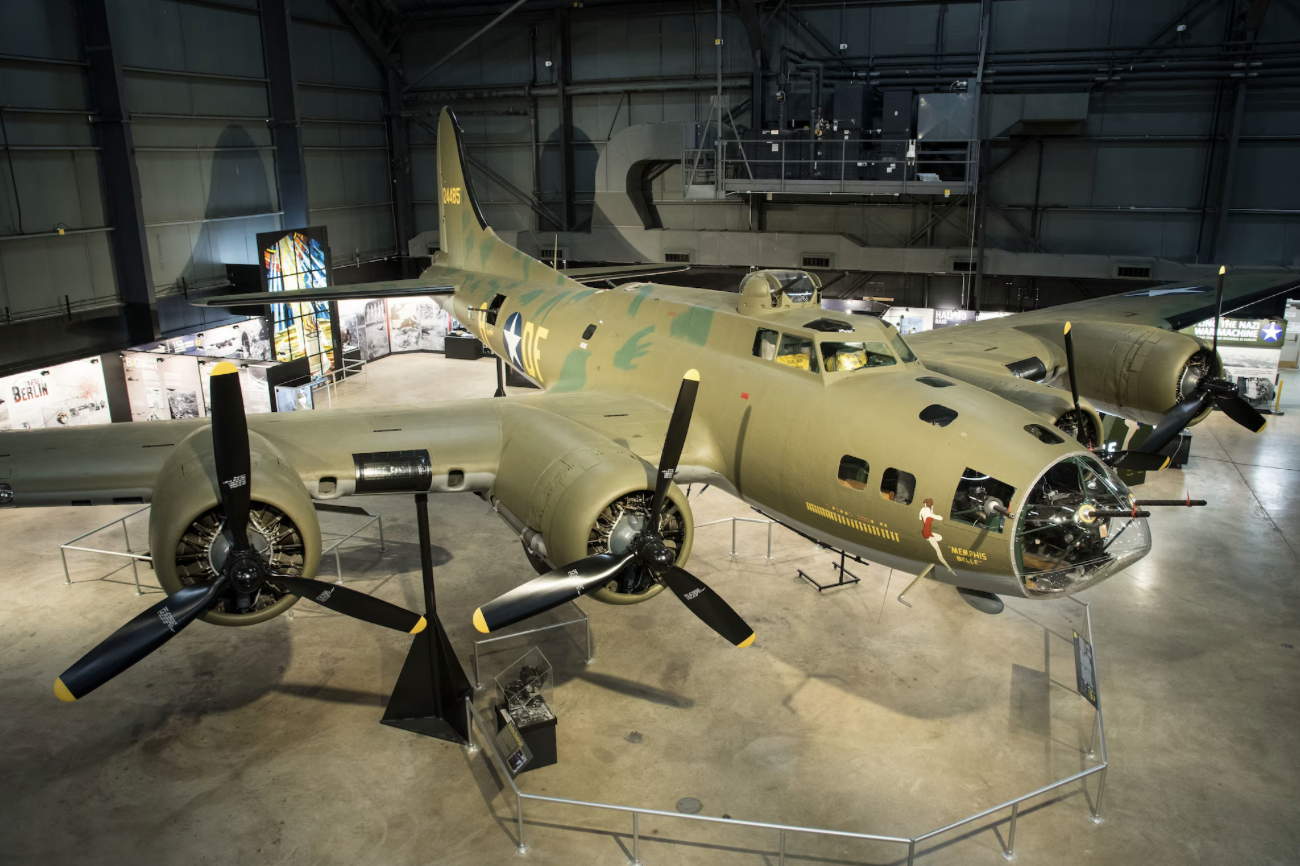The Memphis Belle:
A Bomber’s Legacy
The Belle Takes Flight
The Memphis Belle, a B-17F Flying Fortress, began its journey in 1942 as part of the 91st Bomb Group of the 8th Air Force. Named after pilot Robert Morgan's girlfriend, Margaret Polk, the bomber quickly became a symbol of American airpower during World War II. Its distinctive nose art, featuring a pin-up girl, would become one of the most recognizable images of the war.
The distinctive pin-up girl nose art of the Memphis Belle.
25 Missions: Defying the Odds
In an era when bomber crews faced a statistical impossibility of survival, the Memphis Belle and its crew achieved the remarkable feat of completing 25 combat missions over Nazi-occupied Europe. Each mission was a harrowing experience, with the thin aluminum skin offering little protection against enemy fire. The Belle's final combat mission on May 17, 1943, marked a turning point in the war effort and in the aircraft's own story.
The young men assigned to the Memphis Belle represented a typical Eighth Air Force heavy bomber crew. They ranged in age from 19 to 26 and came from states across the US, including Washington, Indiana, Texas, and Connecticut.
From Combat to Camera
Following its combat service, the Memphis Belle embarked on a new mission - boosting morale on the home front. The aircraft and its crew conducted a three-month war bond tour across the United States. Simultaneously, renowned director William Wyler captured the Belle's story in his 1944 documentary "The Memphis Belle: A Story of a Flying Fortress," cementing its place in both military and cinematic history
Theatrical poster for William Wyler’s 1944 documentary "The Memphis Belle: A Story of a Flying Fortress
A Symbol in Decline
After the war, the Memphis Belle faced years of neglect. Displayed outdoors in Memphis, Tennessee, it fell victim to weather damage and vandalism. Souvenir hunters stripped its interior, leaving the once-proud bomber a shadow of its former self. This period of decline highlighted the challenges of preserving military history and the importance of proper conservation efforts.
Restoration and Rebirth
In 2005, the National Museum of the United States Air Force began an extensive restoration of the Memphis Belle. This painstaking process, involving 55,000 hours of work, brought the bomber back to its wartime appearance. On May 17, 2018 - exactly 75 years after its last combat mission - the fully restored Memphis Belle was unveiled at the museum. Today, it stands as the centerpiece of an exhibit honoring the strategic bombing campaign of World War II, continuing to educate and inspire new generations.
The restored Memphis Belle at the National Museum of the US Air Force
“Thanks for checking out this guide!
Any questions I can help answer about the Memphis Belle?




